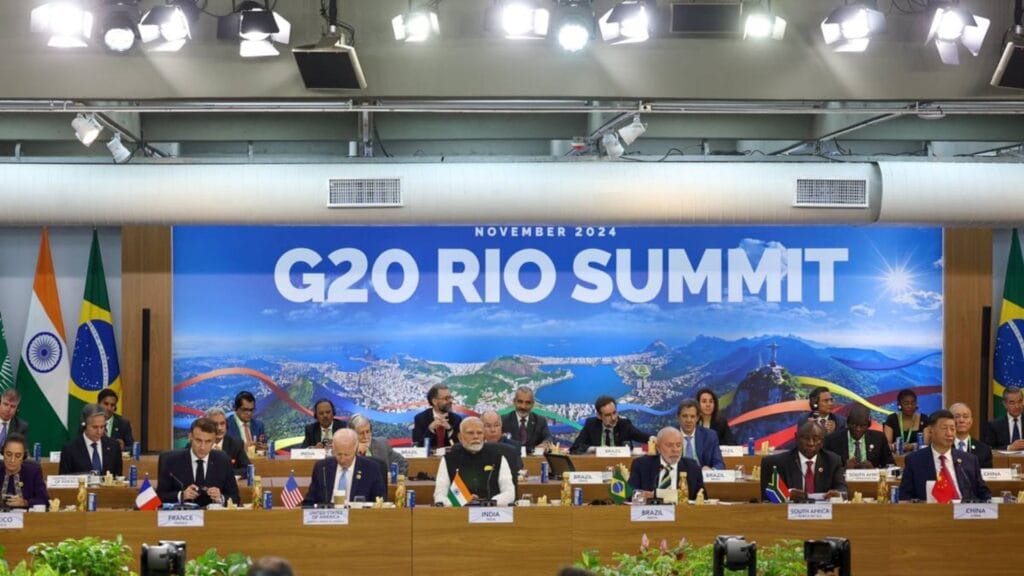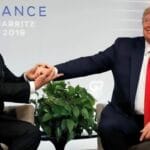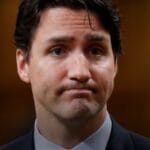The G20 leaders recently met in Rio de Janeiro, Brazil, to discuss pressing global matters such as the climate crisis, the war in Ukraine, and the continued humanitarian crises in Gaza and Lebanon. While the summit generated a lot of noise, I couldn’t help but feel it lacked substance, leaving me wondering, Does anything ever change for the common people?

What Happened at the Summit?
The result of this meeting was an 85-point report that stretched over 22 pages, touching every subject from climate finance to calls for peace in zones of conflict. Here are the key takeaways along with my analysis and thoughts:
1. No Real Progress on Climate Change
Agreed that by the end of COP29 in Azerbaijan, there should be a global financial target for climate action. They agreed to increase climate finance from “billions to trillions,” but skipped including who must provide such funding.
This isn’t new. Year after year, wealthy nations promise to help developing countries combat climate change, but the results are dismal. Remember last year’s COP28 in Dubai? There was no solid commitment to moving away from fossil fuels either.
My thoughts: These vague statements are a recurring theme. If you’re not going to specify targets or timelines, what’s the point? The planet needs action, not wishy-washy promises.
2. Ukraine War Takes Center Stage
Ukraine was on everyone’s lips, especially given the U.S. latest authorization of the use of long-range missiles for Ukraine. And though the G20 final declaration endorsed peace initiatives, Russia was not reprimanded enough for aggression on its part.
China and Brazil have been calling for peace talks, which seems to be perpetually in limbo. And meanwhile, the war rages on while ordinary Ukrainians suffer.
ALSO READ | Joe Biden Authorizes Ukraine to Use US Long-Range Missiles Against Russia
My opinion: The diplomatic phrases of the G20 sound like a political game. If leaders are serious about stopping the war, don’t they take more radical steps? Instead, they keep using harmless, inconsequential sentences not offending people too much.
3. Calls for Ceasefires in Gaza and Lebanon
The G20 leaders, drawing from a mix of nations that are pro-Israel and pro-Palestinian, called for ceasefires both in Gaza and Lebanon. Importantly, they underscored the need for safe returns of displaced people, as well as continual adherence to UN resolutions.
But here’s the glaring issue: When Ukraine was attacked, we saw mass global support. Western nations plastered “We stand with Ukraine” slogans everywhere, from websites to billboards. But where’s that same energy for Gaza’s innocent civilians?
My personal view: This double standard is sad. It’s obvious that the U.S. and its allies control the narrative. To be pro-Ukraine was cool, but be silent on Gaza. Why? Israel is a U.S. ally. That irksome selective empathy, folks.
4. Taxing the Super-Rich
Brazilian President Luiz Inácio Lula da Silva scored a small victory when the G20 decided to consider taxing the ultra-wealthy. Great sound bite and too little substance, it seems, as the declaration included the usual disclaimers regarding respect for “tax sovereignty” and further debates.
Realistically: This is not going anywhere. Rich people have always found ways to avoid paying taxes, and this is just another PR stunt for show rather than a genuine effect to tackle the issue of inequality.
5. Global Alliance Against Hunger
One of the bright spots of the summit was Lula’s push towards a global alliance against hunger. It has been signed by 82 nations as they plan to help 500 million people in that time before 2030.
My views: It is a fine intention, but the onus will be to implement it in the most feasible manner. The G20 genuinely interested in arresting hunger will have to fund this promise adequately and prevent bureaucracy from bogging it down.
My Overall Take
Frankly, I don’t think the G20 will achieve anything. Year after year, leaders sit through G20, G7, or UN summits, but what happens to ordinary people? Nothing. There’s no abatement to the wars they continue rife, like the Russia-Ukraine war and the Israeli-Palestinian situation. Instead of sitting down to talk about peace, politicians fritter away time on pseudo-summits masquerading as progress.
When the Ukraine war began, Western nations and companies began vocally supporting Ukraine. But where are those voices when it comes to Gaza? What makes it so unjustly deserved to withhold importance or protest over the woes of Gaza? Simply put, politics and power. It is all about games, and the victims are ordinary people.
What Do You Think?
Do you believe the G20 will bring real change, or is it just another global spectacle? Let me know your thoughts in the comments below! You can also follow us on Social Media for regular updates on Global Politics and of course memes too.
Analysis by Atul Raj
Note from the Author
This article reflects my personal opinions and insights, and I acknowledge that I might be wrong in some aspects. If you find any mistakes or inaccuracies in the article, please feel free to share your corrections or ideas with us. You can also leave a comment below, I would be glad to read your opinions! My intention is not to harm or offend anyone with the content I publish.






